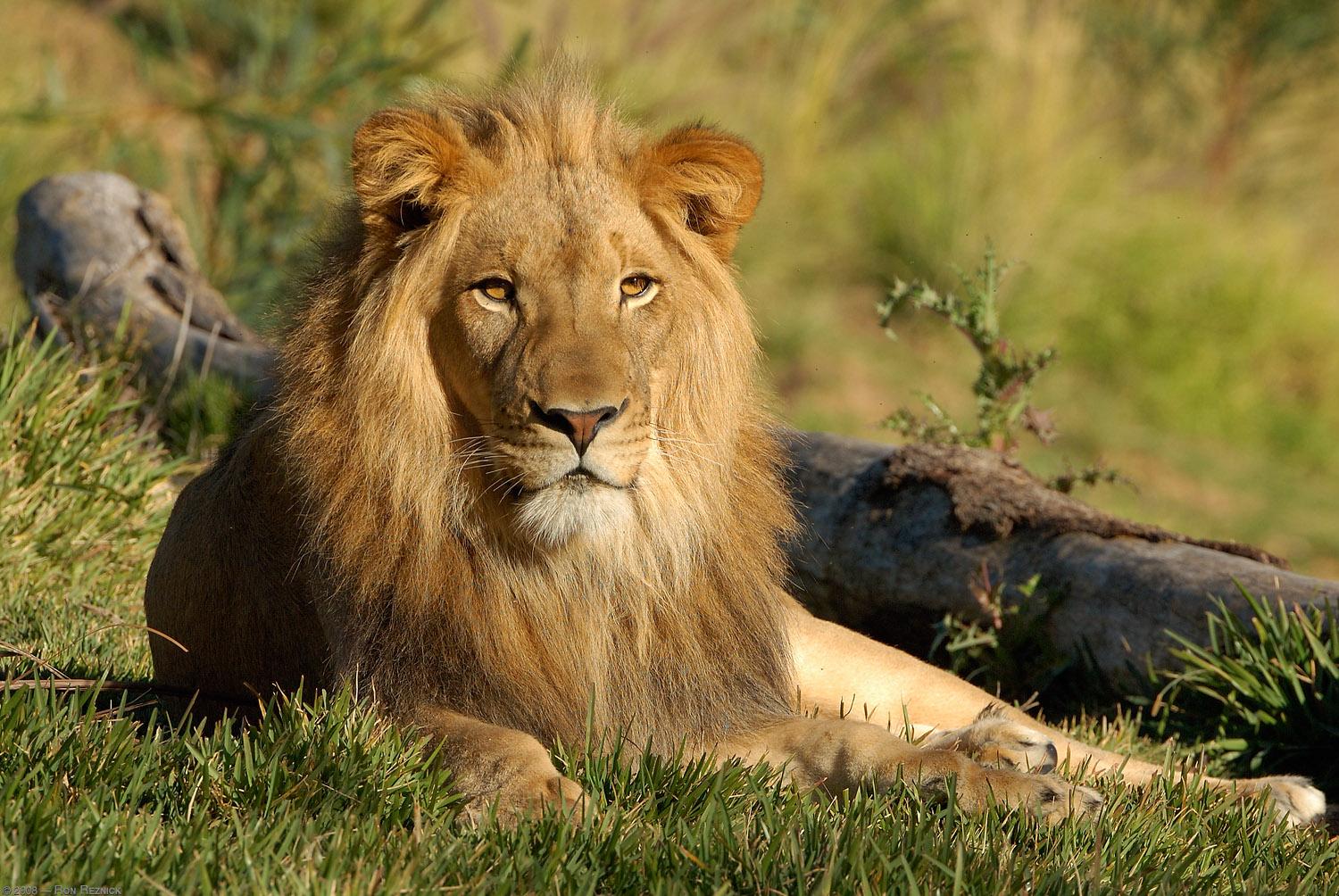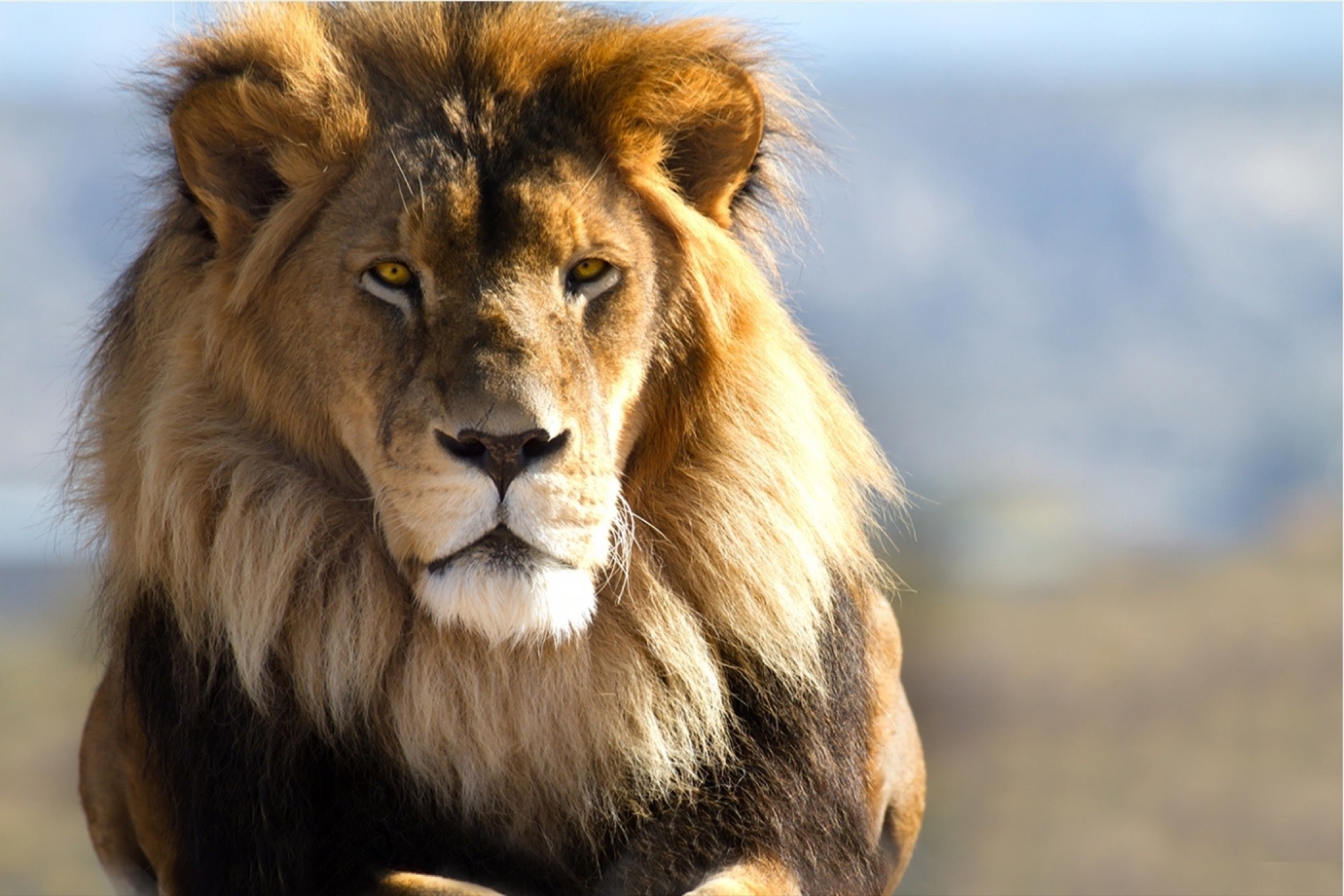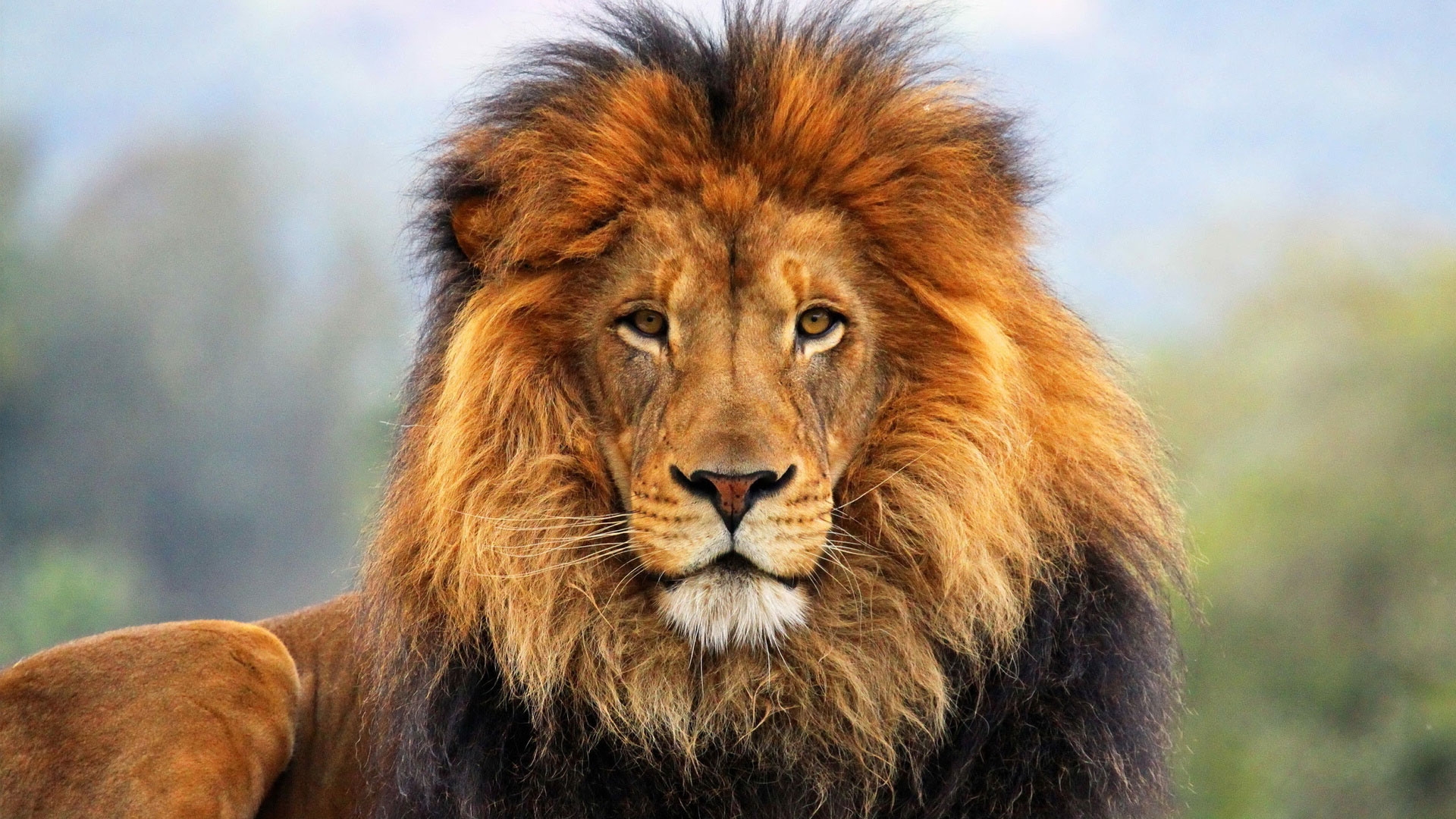Few animated films have captured hearts and imaginations quite like Disney's *The Lion King*. It's a story that, in a way, feels as old as time itself, yet it continues to resonate with audiences, young and old, across the globe. You might have seen it countless times, sung along to its unforgettable songs, or perhaps even teared up during its most poignant moments. But have you ever stopped to think about the people who brought this incredible world to life? The individuals who guided the animators, shaped the narrative, and truly made Pride Rock feel like a real place? It's a question many fans have, wanting to know more about the visionaries behind such a beloved piece of cinema.
The journey to create a film of this scale is, frankly, a massive undertaking. It involves hundreds of talented artists, storytellers, musicians, and technicians, all working together to craft something truly special. Yet, at the very core of this creative process, there are usually one or two guiding forces, often known as the directors. These are the people who hold the overall vision, making sure every piece fits just right, from the smallest character expression to the grandest savanna landscape. So, who exactly was the lion king director, or perhaps, directors?
Today, we're going to pull back the curtain a bit and shine a light on the creative partnership that gave us *The Lion King*. It's a fascinating look at how two distinct artistic voices came together to produce a film that, arguably, changed animated storytelling forever. You see, this wasn't just one person's dream; it was a shared endeavor, a collaborative effort that resulted in something truly iconic. We'll explore their paths, their contributions, and how their work still touches us all these years later, in some respects.
Table of Contents
- The Directors: A Creative Duo
- Roger Allers: A Closer Look
- Rob Minkoff: The Other Half of the Vision
- The Making of a Masterpiece: A Glimpse Behind the Scenes
- The Enduring Legacy of The Lion King
- Frequently Asked Questions About The Lion King Directors
- Conclusion: The Roar That Still Echoes
The Directors: A Creative Duo
When we talk about the lion king director, it's important to remember that this monumental film actually had two directors guiding its creation. This dual leadership approach is, in fact, not uncommon in large-scale animation projects, as it allows for a broader range of perspectives and a shared workload. For *The Lion King*, the reins were held by Roger Allers and Rob Minkoff. Their combined talents and distinct approaches played a very crucial role in shaping the film's look, feel, and its powerful story. It's almost like they were two sides of the same coin, each bringing something special to the table.
Roger Allers brought a deep understanding of traditional animation and storytelling, having been involved in various Disney projects before *The Lion King*. His artistic eye and ability to craft compelling narratives were, for example, truly invaluable. Rob Minkoff, on the other hand, offered a fresh perspective, having directed several successful animated shorts. Together, they navigated the many challenges of bringing an epic tale of lions, family, and destiny to the screen. It was, you know, quite a partnership that blossomed.
Their collaboration wasn't just about dividing tasks; it was about a constant dialogue, a sharing of ideas, and a mutual respect for each other's creative strengths. This kind of synergy is, arguably, what makes a great film truly great. It's the blend of different insights that allows a story to reach its full potential, touching on themes that resonate with so many people. So, while you might think of a single "lion king director," it was, in fact, a powerful team at the helm.
Roger Allers: A Closer Look
Roger Allers has a long and impressive history in the world of animation. Before taking on *The Lion King*, he had already made significant contributions to other beloved Disney films. He was a story artist on *Oliver & Company* and *The Little Mermaid*, and also worked as head of story on *Beauty and the Beast*. These experiences gave him a profound understanding of how to build a story, develop characters, and, frankly, make an audience feel something deep down. He truly had a knack for it, you know.
His involvement in *The Lion King* began quite early in the development process. Allers was instrumental in shaping the initial narrative, drawing inspiration from classic tales like Shakespeare's *Hamlet* and biblical stories. He was, in a way, the architect of the film's emotional core, ensuring that the relationships between characters felt genuine and that the themes of responsibility, loss, and redemption came through clearly. He had a vision for the story's emotional depth, and that, arguably, shines through in every scene.
Allers's background in storyboarding meant he had a keen sense of visual storytelling. He understood how to use camera angles, character expressions, and movement to convey feelings without needing a single word. This focus on visual narrative is, apparently, a hallmark of his work and a big reason why *The Lion King* feels so impactful even today. It's like watching a beautifully illustrated book come to life, page by page, which is pretty special.
Roger Allers: Personal Details
| Detail | Information |
|---|---|
| Full Name | Roger Allers |
| Born | June 29, 1949 (Rye, New York, USA) |
| Notable Works (Director) | *The Lion King*, *Open Season*, *The Prophet* |
| Other Roles | Story Artist, Head of Story, Animator |
| Early Career | Worked on *Oliver & Company*, *The Little Mermaid*, *Beauty and the Beast* |
| Awards/Recognition | Numerous nominations and wins for *The Lion King* and other projects |
Rob Minkoff: The Other Half of the Vision
Rob Minkoff joined the project a bit later than Allers, bringing his own distinct set of skills and a fresh perspective. Before *The Lion King*, Minkoff had already made a name for himself directing several successful animated shorts for Disney, including *Tummy Trouble* and *Roller Coaster Rabbit*, which featured Roger Rabbit. These shorts showcased his ability to handle fast-paced action, comedic timing, and, frankly, a knack for visual gags. He was, in some respects, a master of lively animation.
Minkoff's contribution to *The Lion King* was, arguably, vital in balancing the film's epic drama with its moments of humor and adventure. He helped ensure that the film wasn't just a heavy drama but also had those lighter, funnier elements that audiences love. Think of the antics of Timon and Pumbaa; their presence provides a much-needed break from the more serious aspects of the story, and that's, you know, part of Minkoff's touch. He understood how to weave in those moments of joy and laughter.
The synergy between Allers's focus on emotional depth and Minkoff's talent for dynamic staging and comedic timing created a truly balanced film. It's like they each brought a different spice to the recipe, making the final dish incredibly rich and satisfying. Minkoff's eye for character movement and expression, for instance, helped bring the animals of the savanna to life in a way that felt both grand and, well, real. It's pretty amazing to see how their talents blended so perfectly.
Rob Minkoff: Personal Details
| Detail | Information |
|---|---|
| Full Name | Rob Minkoff |
| Born | August 11, 1962 (Palo Alto, California, USA) |
| Notable Works (Director) | *The Lion King*, *Stuart Little*, *Stuart Little 2*, *The Haunted Mansion*, *Mr. Peabody & Sherman* |
| Early Career | Directed animated shorts like *Tummy Trouble* and *Roller Coaster Rabbit* |
| Awards/Recognition | Nominated for and won various awards for his animated and live-action films |
The Making of a Masterpiece: A Glimpse Behind the Scenes
Creating *The Lion King* was, frankly, an immense undertaking, a bit like trying to map out every single property on Lion Street, Staten Island, or even figure out the detailed profile of Red Lion, Pennsylvania. Every detail had to be considered. The directors, Roger Allers and Rob Minkoff, oversaw a massive team of animators, artists, and technicians. They pushed the boundaries of traditional animation, especially with the stampede scene, which was, in some respects, groundbreaking for its time. That sequence, in particular, really showed what could be done with computer-generated imagery blended with hand-drawn animation.
A big part of the film's success comes from its believable animal characters. The directors encouraged the animators to study real animals, to really get a feel for how they move, how they express themselves. It's a bit like when you see your own dog run across the room to the sliding glass door, looking outside with such focused interest; animators would observe those small, genuine moments. They even brought live animals into the studio for observation, ensuring that Simba, Mufasa, and the other characters moved with a sense of natural grace and power. I know lions are out there in the wild, but seeing how truly grand they are in person, or even in detailed animation, is quite something.
The voice cast also played a very important part in bringing the characters to life. The directors worked closely with actors like James Earl Jones, Jeremy Irons, and Matthew Broderick to capture the right tone and emotion for each character. This collaborative spirit, from the voice booth to the animation desk, was, arguably, what made the film feel so alive. Every single element, every piece of the puzzle, had to fit just right, and the directors were there, guiding it all. It was, you know, a huge project with many moving parts.
The music, too, under the guidance of the directors, became an integral part of the storytelling. Hans Zimmer's score and the songs by Elton John and Tim Rice weren't just background noise; they were, in fact, woven directly into the narrative. The directors ensured that the music enhanced the emotional beats of the story, making those powerful moments even more impactful. This blend of visual artistry, compelling narrative, and unforgettable music is, apparently, a testament to the comprehensive vision held by Allers and Minkoff. It's almost as if every sound and image was perfectly chosen.
Even small, subtle details were considered. For example, the way a deer might cover something with dirt, showing an animal's natural instinct, could inspire how a character interacts with their environment. The directors paid attention to these kinds of real-world animal behaviors to make the animated world feel more authentic. It’s like they were always looking for ways to ground the fantasy in something real, which is pretty cool. This dedication to authenticity, in a way, made the film truly stand out.
The Enduring Legacy of The Lion King
*The Lion King* has remained a cultural phenomenon for decades, and much of that enduring appeal can be traced back to the clear vision of its directors, Roger Allers and Rob Minkoff. The film's themes of family, responsibility, and the circle of life resonate deeply with people, no matter their background. It's a story that, in some respects, teaches valuable lessons without feeling preachy, which is, you know, a difficult balance to strike. The emotional impact it has on viewers is, frankly, quite profound.
The film's influence extends far beyond the screen. It has spawned a hugely successful Broadway musical, multiple spin-offs, and even a more recent live-action adaptation. This continued presence in popular culture speaks volumes about the original film's foundational strength. It's a bit like how the Nittany Lion Circle in Hagerstown, Maryland, or even the name "Food Lion" for a regional company, show how deeply the image of the lion is embedded in our world; *The Lion King* has done that for its story. It has become a truly global touchstone.
The artistic achievements of *The Lion King* also set a very high bar for animated films that followed. The directors pushed for innovative techniques and a level of detail that was, arguably, unprecedented at the time. This commitment to excellence has inspired countless animators and filmmakers to strive for similar heights in their own work. It's a film that continues to be studied and admired, a true masterclass in animated storytelling. Its impact, in other words, is still very much felt today.
Looking back, it's clear that the combined talents of Roger Allers and Rob Minkoff were absolutely essential to *The Lion King*'s success. They created a film that is not only visually stunning and musically rich but also deeply moving and universally relatable. Their work as the lion king director team left an indelible mark on animation history, and the film remains a cherished classic for generations. It’s a powerful example of what can happen when creative minds work together, which is pretty inspiring.
Frequently Asked Questions About The Lion King Directors
People often have questions about the creative team behind such a monumental film. Here are a few common queries about the lion king director team:
Who was the primary director of The Lion King?
There wasn't a single primary director in the traditional sense; *The Lion King* was co-directed by Roger Allers and Rob Minkoff. They both shared the directing responsibilities, bringing their individual strengths to the project. Allers focused more on the story's emotional arc, while Minkoff helped shape the film's comedic and action sequences. It was, in a way, a truly shared vision.
What other famous movies did the directors of The Lion King make?
Roger Allers went on to direct *Open Season* and *The Prophet*, an animated feature based on Kahlil Gibran's book. Rob Minkoff has directed several other well-known films, including the live-action/CGI hybrid *Stuart Little* and its sequel, *Stuart Little 2*, as well as *The Haunted Mansion* and *Mr. Peabody & Sherman*. They both have, in fact, continued to work on a variety of projects.
How did the directors collaborate on such a big film?
Roger Allers and Rob Minkoff worked very closely throughout the production of *The Lion King*. They would often review storyboards, animation sequences, and voice recordings together, providing feedback to the large team. Their collaboration involved constant discussion and a shared commitment to the film's vision, ensuring that the different elements of the story and animation flowed seamlessly. It was, arguably, a very effective partnership.
Conclusion: The Roar That Still Echoes
The enduring appeal of *The Lion King* is a clear testament to the artistic brilliance and collaborative spirit of its directors, Roger Allers and Rob Minkoff. They took a story of epic proportions and, in a way, made it deeply personal and universally resonant. Their combined talents brought forth a world that feels both grand and intimate, filled with characters we care about and moments that stay with us long after the credits roll. It's truly a remarkable achievement, and their work as the lion king director team continues to inspire.
Next time you watch *The Lion King*, perhaps you'll appreciate the meticulous artistry and the thoughtful direction that went into every frame. It's a film that, arguably, transcends generations, a true classic in every sense of the word. If you're curious to see more of their individual works, you can learn more about their contributions to animation on our site, and you can also explore the making of other Disney classics right here. Their legacy, you know, continues to roar.



Detail Author:
- Name : Chadd Durgan
- Username : stokes.anderson
- Email : jazmyn58@yahoo.com
- Birthdate : 2005-10-13
- Address : 41719 Arely Drive Apt. 158 Dashawnville, NE 49944
- Phone : 1-463-537-4338
- Company : Jacobi-Ward
- Job : Economist
- Bio : Ad repudiandae corporis qui officiis. Provident voluptatem rerum veritatis repudiandae aliquam. Veritatis consequatur possimus voluptate necessitatibus voluptates nemo soluta quisquam.
Socials
linkedin:
- url : https://linkedin.com/in/harvey_kilback
- username : harvey_kilback
- bio : Rerum et quis dolorum molestiae.
- followers : 3754
- following : 28
twitter:
- url : https://twitter.com/harvey_official
- username : harvey_official
- bio : Aut autem rerum cum molestiae est repellat. Nihil vel molestiae quo magni nobis est. Quisquam aut ipsum veniam eius.
- followers : 1256
- following : 1627



























